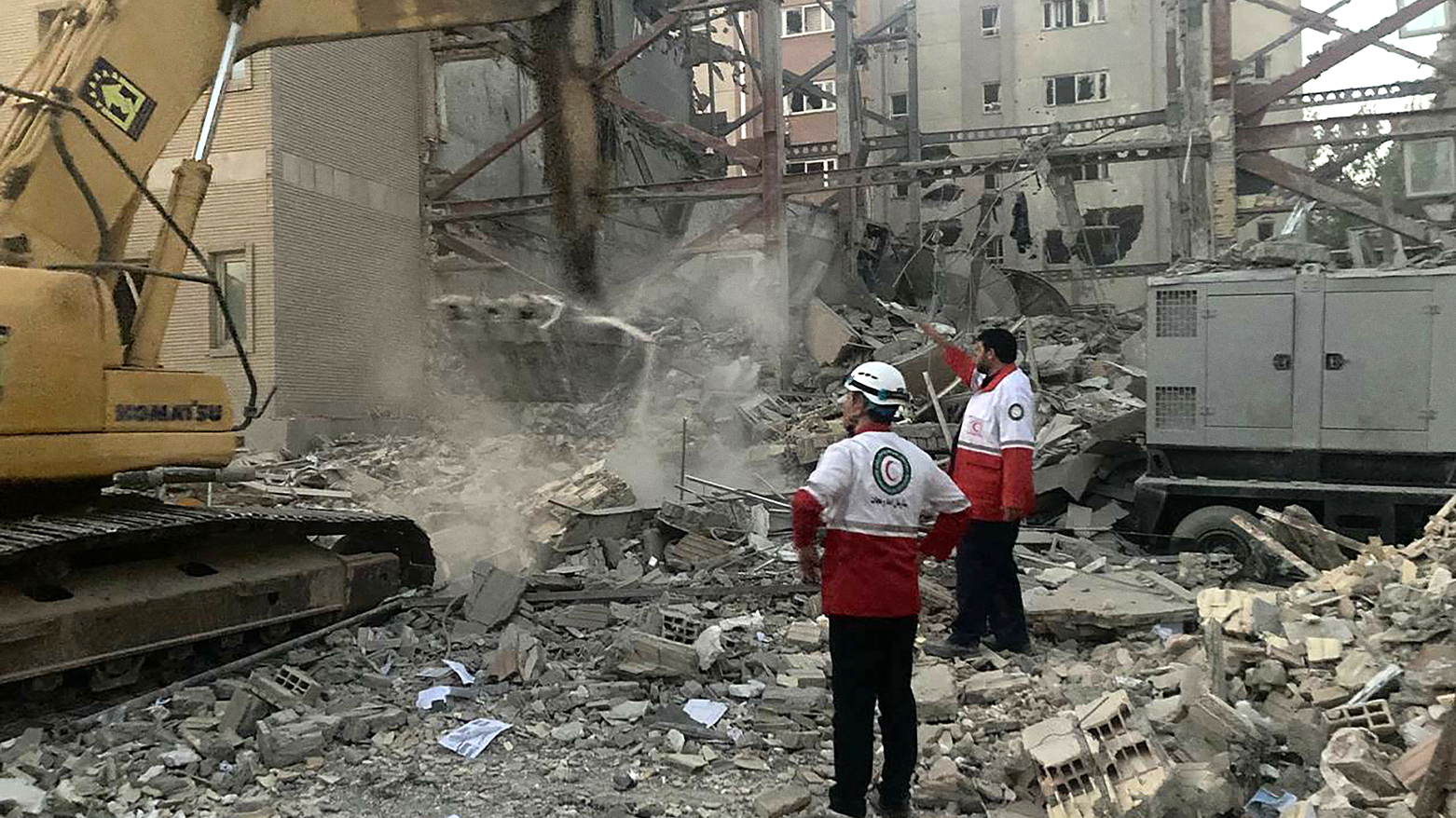Israel Expands Airstrikes in Iran, Claims Elimination of Key IRGC Figures as War Enters Ninth Day
Israel killed top IRGC commanders in airstrikes Saturday, hitting drone and missile sites, while Iran retaliated with missiles on Tel Aviv. Civilian casualties rise sharply, with over 650 killed in Iran and 25 in Israel. No ceasefire is in sight as war enters day nine.

By Kamaran Aziz
ERBIL (Kurdistan24) – The ongoing military conflict between Israel and Iran intensified significantly on Saturday, June 21, as the Israeli military confirmed a series of high-profile airstrikes on Iranian targets, including military commanders, missile infrastructure, and residential areas.
According to a statement posted on the Israel Defense Forces' (IDF) official Telegram account, Israeli warplanes killed Amin Pour Joudaki, commander of the Islamic Revolutionary Guard Corps (IRGC) Second Unmanned Aerial Vehicle Brigade. The IDF stated, "As part of his role, Amin Pour Joudaki advanced hundreds of UAV attacks against Israeli territory from the area of Ahvaz in southwestern Iran."
The Israeli statement added that Joudaki assumed a central position in Iran’s drone warfare operations following the death of Taher Pour, commander of the IRGC Air Force UAV headquarters, who was killed in an Israeli strike on June 13.
On the same day, France24 reported that Israeli Defense Minister Israel Katz confirmed the death of Saeed Izadi, a senior commander of the Quds Force, the IRGC's overseas arm. Izadi, who headed the Palestine Corps within the Quds Force, was killed in a strike on an apartment in the city of Qom, south of Tehran.
In a separate post on its X (formerly Twitter) account, the Israeli Air Force claimed, "We have struck underground missile storage and launch sites in central Iran."
חיל-האוויר החל כעת בגל תקיפות נגד תשתיות לאחסון ושיגור טילים במרכז איראן.
— Israeli Air Force (@IAFsite) June 21, 2025
Iranian state television, meanwhile, reported that a residential building in Qom was struck during Israeli air operations. Morteza Heidari, spokesperson for the Crisis Management Committee in Qom province, was quoted by Iran’s Tasnim News Agency as saying, "Early this Saturday morning, during the continuation of Israeli attacks, the fourth floor of a residential building on Salariyeh Street in Qom was struck."
Heidari confirmed the death of a 16-year-old boy and injuries to two others. Iranian officials have condemned the strike as a violation of international humanitarian law.
Israel has also claimed to have delayed Iran’s nuclear ambitions. According to France24, Israeli Foreign Minister Gideon Saar told Germany’s BILD newspaper, "According to the assessment we hear, we already delayed for at least two or three years the possibility for them to have a nuclear bomb."
In addition to Saturday’s reported strikes, Iran’s Isfahan nuclear site was also targeted, according to Iran’s Fars news agency. However, Iranian authorities confirmed there was no leakage of hazardous materials.
Iran retaliated early Saturday morning with a new missile attack on Israeli territory. Israeli media reported that five missiles were launched at Tel Aviv but were intercepted by the country’s air defense systems. Warning sirens were activated, and citizens were instructed to take shelter.
The Times of Israel reported that missile debris caused fires in the Gush Dan area. Authorities have yet to provide a complete assessment of the damages.
As the war stretches into its ninth day, the human toll continues to mount. The U.S.-based Human Rights Activists News Agency (HRANA) announced that at least 657 people have been killed in Israeli strikes on Iran, including 263 civilians and 164 military personnel. Among the civilian casualties are 20 children, most of them from Tehran, HRANA reported. The total number of wounded has surpassed 2,000.
Iran’s Ministry of Health released a similar but higher toll, stating that 400 people have been killed and 3,000 injured since June 13.
The conflict erupted on the morning of Friday, June 13, when Israel launched a series of preemptive airstrikes against Iranian nuclear and military infrastructure. Targets included uranium enrichment sites, ballistic missile facilities, and command centers. Several top commanders and nuclear scientists were reportedly killed.
In retaliation, Iran launched a barrage of ballistic missiles at Israel later that evening. While most were intercepted, a number penetrated Israel’s defense systems, damaging buildings and wounding civilians.
Since then, Israel has conducted daily airstrikes across Iran, reportedly hitting 21 of the country's 31 provinces. Israeli authorities have stated that at least 25 people in Israel have been killed and hundreds wounded as a result of Iranian missile attacks.
As the escalation continues with no ceasefire in sight, international leaders have urged both parties to return to diplomatic channels. However, neither side has signaled a willingness to halt hostilities.
Kurdistan24 will continue to monitor the situation and provide updates as more information becomes available.